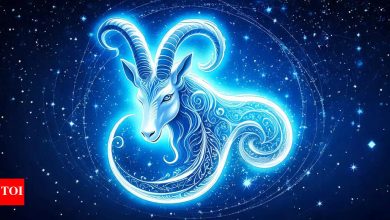Epstein Files: Kash Patel, Pam Bondi, even Donald Trump – why MAGA feels betrayed | World News

Depending upon who you ask, there are several movies that can lay claim to the title of greatest comic book film of all time. Some would bat for Avengers: Endgame, the culmination of an 18-movie project with the greatest team-up sequence ever, where Captain America finally says the words we had been waiting for him to utter: “Avengers assemble.” Others might choose Deadpool, that fourth-wall breaking festival of cynicism and comic-book glee.Americans have always loved their comic books. But they love their conspiracy theories even more.Did they really land on the moon, and did Mr Gorsky get what was coming to him? Did Mossad kill JFK? Were aliens – from outer space, not just from outside the mainland – abducting cows and rednecks in Kansas? Did Bush do 9/11? Did the Clintons run a child sex trafficking ring out of a Washington pizza shop?The thing about conspiracy theories is that they offer the comfort of a shadowy explanation when reality is simply too mundane. Which is why, when Jeffrey Epstein died in 2019, Americans instantly reached for the only explanation that made sense to them: he didn’t kill himself.Earlier, when President Donald Trump snapped at a reporter, “Are you still talking about Jeffrey Epstein?”, it was a reminder that conspiracy theories may comfort the masses, but they discomfort those in power. Especially when those same theories were once fuel for their rise.Epstein’s apparent jail-cell suicide spawned a meme-worthy rallying cry. Nearly half of Americans came to believe Epstein was murdered rather than died by his own hand. Such widespread doubt underscores how deeply conspiracy thinking runs in the American psyche, especially when a story involves wealth, power, and sex crimes. Epstein’s case had all three in spades, and it quickly became a magnet for speculation.This collective skepticism wasn’t born in a vacuum. Epstein moved in elite circles, partying with royalty, tech moguls, and US presidents. The idea that his death must have involved foul play – perhaps an assassination to protect powerful accomplices – struck many as more plausible than the official story. After all, if a notorious criminal with potential dirt on the rich and famous dies mysteriously in federal custody, why wouldn’t Americans suspect a cover-up? Our culture’s love affair with conspiracy theories meant Epstein’s demise was immediately absorbed into a familiar narrative: a shadowy “deep state” or cabal silencing a man who knew too much. Many believed the truth about Epstein was being suppressed to shield the guilty – a storyline compelling enough to span the political spectrum.
The Mystery of the Epstein Files
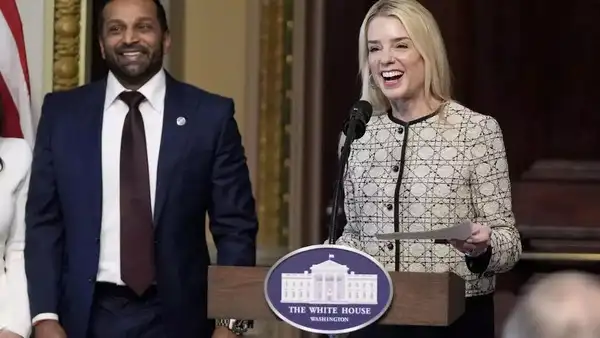
Kash Patel and Pam Bondi closed Epstein case and said there is no client list.
At the heart of these suspicions lies the legend of the “Epstein files.” This catch-all term refers to the trove of evidence and documents associated with Epstein’s crimes – from his private flight logs and contacts to any videotapes or black books that could name names. Conspiracy theorists on both the Right and Left became fixated on the idea that somewhere in those files was a client list of high-profile pedophiles who allegedly participated in Epstein’s underage sex trafficking ring. If revealed, such a list could supposedly bring down billionaires, celebrities, even world leaders. It’s no wonder the notion captivated the public imagination.Beyond the widely accepted facts of his sex trafficking crimes, Epstein became the centrepiece of a sprawling universe of conspiracy theories. Some claimed he was running an intelligence operation for the CIA, others pointed fingers at Mossad, alleging he was used to entrap influential Americans and foreign leaders in a global blackmail ring. Still others believed Epstein acted as a private fixer for Wall Street titans, collecting kompromat to control deals and rivals. There were theories tying him to shadowy billionaire cabals, secret societies, even satanic child abuse rings. In this worldview, Epstein wasn’t just a lone paedophile with powerful friends – he was the linchpin of a transnational intelligence network, harvesting secrets through sexual exploitation to protect the powerful and maintain geopolitical leverage. None of these theories were ever substantiated with definitive evidence, but the combination of underage victims, secret island compounds, private jets, and the deaths of multiple associates made them impossible to kill.In reality, some Epstein documents have trickled out over the years: court records, witness testimony, even a 95-page address book of contacts. But the most salacious lore – tapes of VIPs committing crimes, secret lists of customers – remained unconfirmed. This void of hard evidence was readily filled by speculation. Online forums buzzed with unsubstantiated claims that Epstein ran a blackmail scheme, recording powerful guests with minors to extort them later. Every high-profile figure who’d ever crossed Epstein’s path became a target of amateur sleuthing. Names like Bill Clinton and Prince Andrew featured heavily in right-wing narratives, while some left-wing commentators pointed at Donald Trump’s long-ago friendship with Epstein.The craving for an explosive revelation grew so intense that it hardly mattered if the evidence was there or not – people were determined to find (or imagine) the smoking gun.Politicians and influencers sensed this public hunger. During Donald Trump’s 2024 campaign, the promise of exposing the Epstein files became a tantalising campaign pledge. Trump himself hinted multiple times that he would probably declassify the Epstein files if re-elected. The implication was clear: a vote for Trump might finally uncover “the truth” about Epstein’s network. Americans wanted answers – and many were willing to believe there was a grand secret dossier waiting to be opened.
No one amplified these expectations more than the very people Trump later appointed to high office. Kash Patel, Dan Bongino, and Pam Bondi – now some of the most prominent figures in Trump’s Justice Department – were, not long ago, vocal champions of Epstein-related conspiracy theories. In their days as MAGA media personalities and influencers, they spoke as though the elusive Epstein client list was real and its suppression an outrageous injustice.FBI Director Kash Patel, once a combative GOP operative and Trump national security aide, built his public image as a crusader against the so-called deep state. In 2023, he insisted authorities were hiding Epstein’s client list “because of who’s on that list,” challenging the FBI to “put on your big boy pants and let us know who the pedophiles are.” Patel authored a book calling D.C. bureaucrats “Government Gangsters,” furthering his outsider credentials. But during his Senate confirmation hearing earlier this year, Patel vowed to expose Epstein’s co-conspirators without fear or favour. Now, as FBI chief, he is facing anger from Trump’s base for failing to produce the revelations he once demanded.
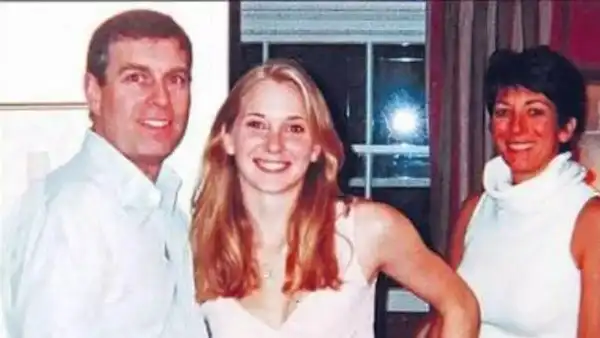
Prince Andrew was supposed to be the top name on Epstein’s list but US concluded that no such list exists.
Deputy FBI Director Dan Bongino, a former Secret Service agent who became a podcast superstar before joining the bureau, similarly positioned himself as a truth-teller unafraid to challenge the establishment. In May 2023, he told listeners the Epstein story was too important to let go. On a January 2024 episode, he played a clip of a journalist saying Epstein was murdered because he “made his whole living blackmailing people,” calling it “super important” and claiming his own sources said the same. His audience believed that if someone like Bongino were in charge, the Epstein cover-up would finally be exposed. As the FBI’s No. 2 official today, he is now accused of betraying that promise.Attorney General Pam Bondi, the former Florida Attorney General and now the nation’s top law enforcement official, took a legal approach to Epstein conspiracies. In January 2024, she condemned the delay in releasing Epstein-related files. By early 2025, Bondi teased the imminent release of Epstein’s client list, telling Fox News it was “sitting on my desk right now to review.” She hyped that “hopefully tomorrow” the public would see “a lot of flight logs, a lot of names, a lot of information.” For Trump’s base, this was red meat. But after this week’s Justice Department memo closing the Epstein case, Bondi too has become a target of the same supporters she once energised.
Promises vs. Reality: The Files Fizzle
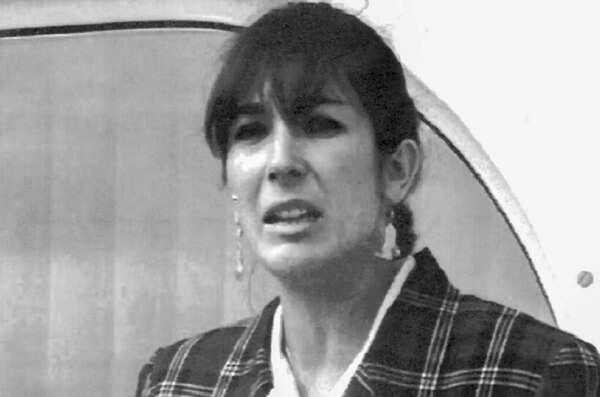
FILE – Ghislaine Maxwell, daughter of late British publisher Robert Maxwell, reads a statement expressing her family’s gratitude to Spanish authorities after recovery of his body, Nov. 7, 1991, in Tenerife, Spain. (AP Photo/Dominique Mollard, File)
When Trump won re-election and installed these allies in key positions in 2025, expectations were sky-high. Initially, the administration played right into them. In late February, Bondi convened a special event to unveil “Phase 1” of the Epstein files. Binders emblazoned with the DOJ seal were handed to conservative influencers. Patel vowed on social media that any hidden records would be uncovered and made public.The enthusiasm didn’t last long. The binders turned out to be largely public record – old court filings, emails, documents that revealed little new. No sensational client list. No shocking videos. The bombshell was a whimper.Criticism erupted. Bondi scrambled, blaming the FBI for withholding pages and imposing an overnight deadline for Patel to turn them over. Days later, she said a “truckload” of Epstein evidence had arrived. On Sean Hannity’s show, she insisted “America has the right to know” and everything would eventually come out. By May, Bondi said the FBI was reviewing tens of thousands of videos involving Epstein and minors – a shocking claim, but to sceptics it sounded like another excuse.Meanwhile, Patel and Bongino grew conspicuously measured. Gone were the murder insinuations. Patel told Maria Bartiromo, “You know a suicide when you see one, and that’s what that was.” Bongino was blunt: “He killed himself. I’ve seen the whole file. He killed himself.”For Trump’s base, this was betrayal. Their heroes now defended the system they once vowed to expose.
Musk’s “Big Bomb” and MAGA World Backlash
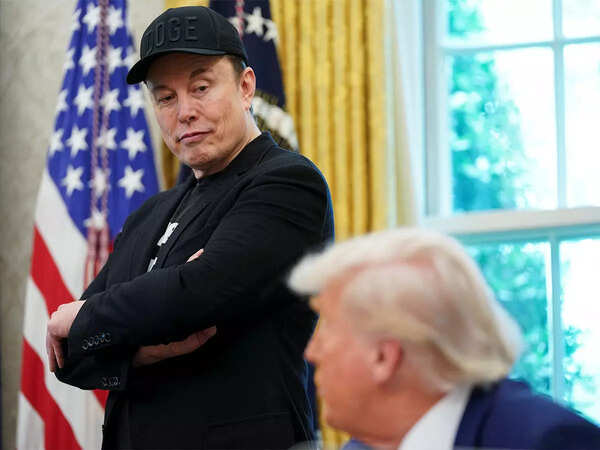
Musk intensifies Trump feud with third party launch, Epstein jab over GOP tensions
Frustrations exploded into rebellion in early June when Elon Musk dropped his “really big bomb,” tweeting that Trump was “in the Epstein files,” suggesting this was why they remained secret. Within 48 hours Musk deleted the posts, admitting he “went too far.” But the damage was done. Democrats seized on it, demanding the files be released. The administration responded with a memo: no incriminating client list, no blackmail, Epstein died by suicide. Case closed.The backlash was instant. Judicial Watch rebuked Patel and Bongino for becoming “Deep State traitors.” Laura Loomer called for Bondi’s resignation. The Hodge Twins and Mike Cernovich demanded Trump fire her. Michael Flynn slammed the memo. Alex Jones accused them of betrayal. “Deep State traitors” became the new slur.Trump wasn’t spared. When asked about Epstein at a Cabinet meeting, he snapped again: “Are you still talking about Jeffrey Epstein? … This guy’s been talked about for years… that is unbelievable.” To his followers, it sounded dismissive. Their promise of truth had been shut down by the very people they elected.
From Outsiders to Defenders of the Status Quo
How did it come to this? The journey of Patel, Bongino, and Bondi from conspiracy promoters to institutional defenders is a masterclass in the paradox of power. As outsiders, conspiracy theories were weapons. In power, they became liabilities. When they stopped telling people what they wanted to hear and started telling them what they needed to hear, the base turned on them. They became what they once despised.For Trump, this is a cautionary tale. By nurturing a base that thrives on conspiracies, he ensured conflict when reality demanded course correction. The Epstein files may never bring down a president or prince, but they have already claimed collateral damage: the trust between a populist leader, his lieutenants, and the followers who expected sensational truth. Americans love their conspiracy theories. And when one is pried from their hands, they don’t let it go – they just look for someone to blame.



